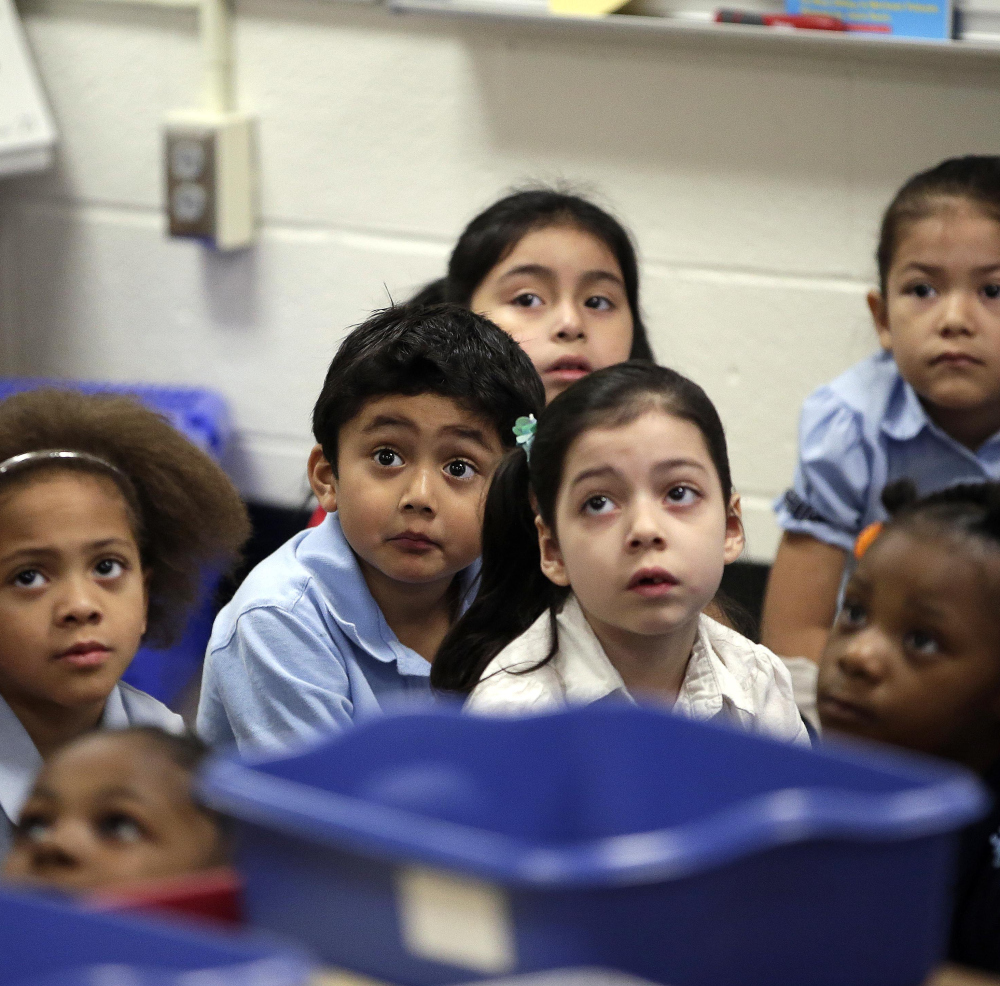A wise old African saying cautions, “If you want to go fast, go alone. If you want to go far, go together.”
Last year, Maine policymakers made a hasty decision to go it alone on standardized testing, pulling out of the Smarter Balanced Assessment Consortium, a coalition of more than 20 states working together to develop a Common Core-aligned test. States are – and should be – in charge of such matters, and the authority of local lawmakers should be respected.
But it’s worth asking whether this particular decision did a disservice to Maine’s children.
That’s one possible inference from a new study published by our organization, the Thomas B. Fordham Institute – the first independent, comprehensive evaluation ever undertaken of Smarter Balanced and competing tests. Our analysts – highly experienced educators and content and assessment experts – found that Smarter Balanced indeed delivers on its promise to be a high-quality, challenging test that’s well matched to the new standards that Maine and most other states adopted in 2010.
DEPTH OF KNOWLEDGE
This is a significant accomplishment. The standardized tests that most states had been using previously were criticized for decades, and for good reason.
They were mostly cheap, low-level, fill-in-the-blank tests that were easy to game and that encouraged teachers to spend endless classroom hours on mindless test preparation. These tests are not those.
By 2010, when the Common Core initiative emerged, policymakers in Maine and most other states had recognized these problems and set out to address them. Their solution was to replace the old tests with “next-generation” assessments like SBAC and the other multistate consortium test, Partnership for the Assessment of Readiness for College and Career. About half of states administered one of these two tests in 2014 -15 – and these turned out to be, by no small margin, the highest-rated tests in our evaluation.
These tests, by and large, don’t resemble the ones parents likely took as children. Smarter Balanced and PARCC use tasks to assess high-priority skills within the Common Core, such as using evidence from provided sources in writing; research skills; and solving multistep math problems.
The tests ask students to read complex texts, require a range of cognitive demand and demonstrate variety in item types. They require close reading, research and inquiry, and emphasize vocabulary and language skills.
Even better, test questions possess a depth of knowledge and a range of rigor that’s much more closely aligned with what teachers expect in classrooms.
And with their utilization of technology – Smarter Balanced even, with some success, attempts to measure students’ speaking skills – are a welcome advance from the 20th-century exams students previously look.
But since 2010, the Common Core became politically radioactive, which led some states, including Maine, to bail on the common assessments, even while holding the line on the underlying standards.
Today, nobody can be sure whether the alternative test that Maine has adopted – known as the Maine Education Assessments – is a good one, as there’s never been an independent evaluation of it such as the one just completed for Smarter Balanced and the other national exams. Maine’s policymakers should commission an independent evaluation, pronto.
‘WE DON’T KNOW’ ABOUT MEAS
Objective reviewers – including teachers and other content and assessment experts – should determine whether the test places sufficient emphasis on the most important content needed for college and career readiness and whether it expects all students to demonstrate the full range of thinking skills called for by the rigorous standards that Maine’s schools are supposed to be implementing.
Given the powerful effects that tests have on what happens in schools, the crucial criterion for judging them is simply put: Does the test encourage the kind of curriculum and instruction we want for children?
In the case of Smarter Balanced, the answer from our review is “yes.” Teachers, parents and taxpayers in Maine should be concerned that, for the Maine Education Assessments, the answer is “we don’t know.” Getting a better answer needs to be an urgent priority.
Copy the Story LinkSend questions/comments to the editors.



Success. Please wait for the page to reload. If the page does not reload within 5 seconds, please refresh the page.
Enter your email and password to access comments.
Hi, to comment on stories you must . This profile is in addition to your subscription and website login.
Already have a commenting profile? .
Invalid username/password.
Please check your email to confirm and complete your registration.
Only subscribers are eligible to post comments. Please subscribe or login first for digital access. Here’s why.
Use the form below to reset your password. When you've submitted your account email, we will send an email with a reset code.